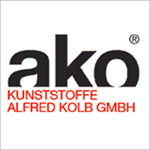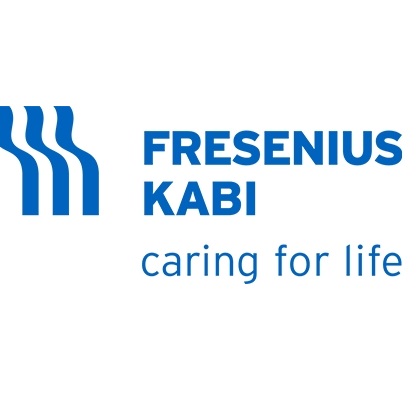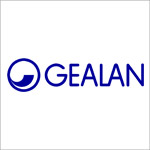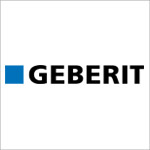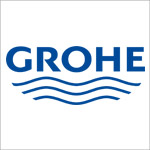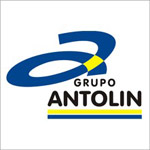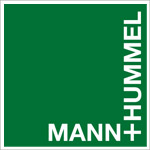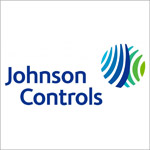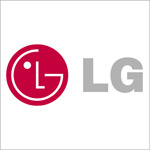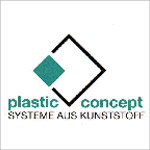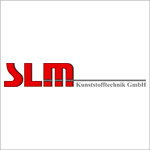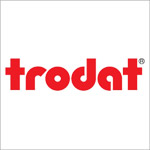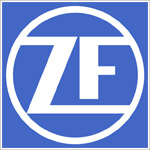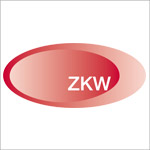GTC
Stand 28.02.2025
§1 General Terms / Applicability
(1) These General Terms and Conditions (following GTC) are exclusively effective for all contracts of the ONI Temperiertechnik Rhytemper GmbH (following ONI), ONI doesn´t accept other and conflicting Terms and Conditions, besides ONI has accepted these Terms and Conditions expressively in writing. They aren´t accepted and effective on other contracts they weren´t expressively accepted. These GTC are exclusively effective, if ONI knows that the contractor has other conflicting GTC and complies with the contract without any reservation.
(2) All agreements between ONI and customer in relation to the completion of the contract are written in the contract and/or the acceptance of order under implication of these GTC.
(3) These GTC are only effective in contracts between ONI and companies, persons in law and corporations of public law.
(4) These GTC are effective for all contracts with ONI and customer in the future.
(5) These GTC are effective for all contracts, ONI is closing, irrespective of the agreement category.
§2 Offer / Bidding documents
(1) All offers of ONI are without engagement to accept within 4 weeks. ONI reserves the prior sale of goods and masses, which ONI specifies as in stock.
(2) Individual agreements which are done in a single case with the customer, including side-agreements, changes and additions are prior to these GTC. These agreements have to be done in writing.
(3) ONI reserves all intellectual property rights on pictures, drawings, calculations and all other documents. Customer is only allowed to use these documents for production due to the delivery of ONI. After the processing of the order customer has to return these documents to ONI without request.
(4) ONI is allowed to change construction, implementation and/or service from the written condition in catalogue, brochure and internet in an unessential way, or because of the change of specifications by law or by government, or because of the technical progress, if the function of the product is not effected negatively.
§3 Prices and Payments
(1) If there is no other regulation in the acceptance of order, all prices of ONI are valid ex works (INCO-Term EXW Großröhrsdorf). Customer has to pay for packaging, distribution, assembly, putting into service and all other additional costs (f. e. customs costs). These additional costs are invoiced to the customer.
(2) The prices of ONI are without VAT. VAT will be invoiced additionally in the regular amount which is valid on the day of invoicing.
(3) ONI reserves its right to distribute only after prepayment or with cash on delivery.
(4) The purchase price is to pay after fourteen calendar days without any discount, if there is no other regulation in the acceptance of order. After expiry of this period the customer is in the delay without reminder. This regulation is effective on partial deliveries. For the delay of payment are effective the laws. ONI reserves all other rights for damages.
(5) Cheques or bills of exchange are accepted only on account of performance; the customer has to pay for the costs of discounting and collection. The customer has to pay for the costs of any protests against bills of exchange and for the special procedure deciding claims arising out of a bill of exchange. If ONI has the duty of advance payments the duty of customer stays unaffected.
(6) The customer is allowed to declare compensation, if the claim the customer wants to compensate is juridically determined or expressly approved by ONI.
(7) ONI is allowed to claim an extra charge for small quantities of 30 EUR per delivery, if the delivery has an invoice of less than 100 EUR. This extra charge for small quantities is a charge for the handling of the small quantity and flatrate for ONIs service costs. If the worth of the delivery raises 100 EUR excl. VAT including the extra charge, the extra charge will stay untouched. These extra charge is allowed to be claimed, if the worth of single orders of a blanket order is less than 100 EUR excl. VAT. It doesn´t depend on the worth of the whole blanket order.
§4 Time of delivery
(1) Times of delivery are not binding and ONI is not obligated to meet them, except on expressly agreement that declares the bindingness of the time of delivery. If the time of delivery is expressly agreed, the begin of the period of delivery and/or the time of delivery assumes an agreement about all technical and mercantile questions. If a product shall be delivered and integrated in customers site the customer has to give complete information about his site, where ONI has to integrate its product, to be allowed to find an agreement for a binding time of delivery. The time of delivery only can be observed bindingly, if ONI receives these information at the latest at the time ONI gives the message ONI can deliver.
(2) Times and/or periods of delivery can only be observed, if customer gives all documents necessary for the execution of the order and complies with all of his duties in time, especially the duty to pay for the invoices. If customer doesn´t comply with his duties in time or if customer changes the contract after conclusion, period of delivery and/or time of delivery extend reasonable, at least for the time customer was in delay with his duties.
(3) If ONI is not able to hold binding times and/or periods of delivery and not responsible for the delay, ONI has to inform customer immediately and has to tell customer the estimated and nonbinding time and/or period of delivery. If ONI is not able to deliver in the new nonbinding time, ONI is able to cancel the contract; ONI has in that case to payback all payments, which aren´t opposite to a contractual and generated performance. Especially the case of missing or delayed supply of ONI by the suppliers of ONI, if ONI did a congruent covering transaction and neither ONI nor ONIs supplier is responsible for the missing or delayed supply or if ONI has no duty of supply is regulated here.
(4) The time of delay of delivery determines by law. The customer has to remind ONI in writing. Without reminder ONI cannot get in delay of delivery. If ONI is in delay of delivery, customer can claim flatrate damages. The flatrate damages amount to 0,25% of the worth of delivery without costs and VAT per week of delay, in maximum 2,5% of the worth of the delayed products. ONI is allowed to verify that customer has no damages or as lower damages as the flatrate damages. ONI doesn´t agree with any contractual penalties. ONI doesn´t agree with individually stipulated contractual penalties.
(5) All damages of the customer because of delay of delivery and all damages instead of the delivery, which pass over the regulation § 4 (4) of these GTC are excluded in all cases of delayed delivery. This is not valid in cases of intention and gross negligence and in cases of injury of life, body or healthiness. The regulations of the burden of proof by law stay untouched. The customer is able by law to cancel the contract, if ONI is liable for a gross delay.
(6) ONI is entitled to partial deliveries, if they are reasonable for customer. These partial deliveries are independent contracts. ONI is entitled to invoice these partial deliveries separately.
§5 Passing of the risk / Acceptance / Default of acceptance
(1) The delivery takes place ex works. The place of fulfilment is at the ONI site in Großröhrsdorf. If customer demands and pays for the products are shipped to another place. ONI entitled to dictate the kind of shipping (esp. carrier, shipping way and packaging), if there is no other agreement. If ONI has to install the equipment, place of fulfilment of the delivery is the site of ONI, for the installation the agreed place of the equipment.
(2) The danger of accidental damage or accidental loss of the equipment changes to the customer by delivery to the customer. If customer demands shipping, the danger of accidental damage or loss and the danger of delay changes to the customer by delivery to the carrier or the person who is appointed to do the shipping. This is effecitve for particular deliveries, too, but not if ONI ships with own personnel. If an approval is agreed, the approval is the time of the change of danger of accidental damage or accidental loss. For the approval are effective the laws of the works contract, §§ 633 ff. BGB.
The delay of acceptance and the operationalization without reproof are the same like the approval. The operationalization is the beginning of regular production. Every test production which is longer than one calendar day with at least one hour of production is the operationalization.
(3) If customer is in delay of acceptance, or customer fails to collaborate or delays the work of ONI because of other reasons and customer is liable for, ONI is entitled to get damages and additional expenses. ONI is entitled to get flatrate damages of 0,25% of the worth of delivery without costs and VAT per week of delay, in maximum 2,5% of the worth of the delayed products. The term begins with the expiry of acceptance time limit.
ONI is allowed to verify that ONI has higher damages as the flatrate damages. The damages by law stay untouched. The flatrate damages are to charge to the other damages. Customer is allowed to verify that ONI has no damages or as lower damages as the flatrate damages.
§6 Liability for defects
(1) If customer is merchant, he has to check and reproof the goods corresponding to §§ 377, 382 HGB. If customer finds a defect, customer has to immediately notice the defect to ONI in writing. The notice is immediately, if the notice arrives at ONI within five working days. Independent on this duty customer has to notice in writing apparent defects within two working days since delivery. If customer fails this period of time, ONI is not liable for this defect.
(2) ONI is not liable for the defect of wear and tear parts, valves and for the usability of the product for the purpose of the customer.
(3) ONI is not liable for defects, if the customer uses the products against the technical specification, against the instruction manual or against the approved engineering rules.
(4) The liability for defects expires, if customer manipulates the product and the manipulation is not expressly approved by ONI in the concrete contract. The liability for defects expires, if customer tries to repair the products non-professional and the repair is not expressly approved by ONI in writing before the beginning of the repair.
(5) If a defect occurs, ONI has own option how to fix the defect. ONI is approved to repair or to deliver a new product by own option. ONI has the right, too, to refuse the fixing of the defect by law.
(6) ONI has the right to condition the fixing of defects on the payment of the payable purchase price. Customer has the right to reserve a reasonable part of purchase price in relation of the defect.
(7) Customer has to give the reasonable time and opportunity to fix the defect to ONI, esp. he has to give the defect products to check the asserted defect. If ONI delivers a new product customer has to give the delivered product back to ONI. If ONI was not liable for the installation of the product, ONI is in the case of fixing of defects not liable for the deinstallation and reinstallation of the product.
(8) ONI is only liable for the costs of the check of the product and for the expenses of fixing, esp. costs for transportation, driving, working, material (not: costs for installation and reinstallation), if a defect is existent. Costs for fixing of defects, which occur because the product is transported by customer to another place than the place of delivery, has to pay customer. These costs have to pay customer before fixing starts. If the fixing of the defect is unjustified, customer has to pay for the costs ONI had. ONI has to invoice these costs.
(9) If fixation of defects fails for two times or a term set by the customer ran out without success or the setting of a term is disposable, customer can cancel the contract or lower the purchase price. This regulation is only valid for extensive defects, which are related to the operability of the product. Excluded is the defect of valves and wear and tear parts.
(10) Customers damages for defects of the product or the rights on the product are excluded. This is not valid for bad faith concealment of a defect, breach of a guarantee, is given on top of defects liability, injury of life, body or healthiness or breach of the contract in gross negligence or intention. Other damages for the customer, which aren´t regulated in this GTC are excluded. The regulations of the burden of proof by law stay untouched.
(11) If customer gives ONI a reasonable term to fix the defects, customer is allowed to fix the defect on ONIs costs. Customer is only able to get the expenses from ONI. The call for the defect has to be in text form. Customer isn´t allowed to fix the defect at ONIs costs, if ONI has the right to reject the fixing of the defect by law.
(12) The liability for defects become time-barred 12 months after delivery of the products to the customer. Customer is only allowed to return products after acceptance of the return by ONI. This term is not valid, if the law provides longer terms in § 438 Abs. 1 Nr. 2 (Buildings and things for buildings), § 479 and 634a Abs. 1 Nr. 2 (defects on buildings) BGB.
(13) Customer has only contribution claims against ONI, if customer has with its customers closed no agreements, which raise the liability for defects over the law.
§7 Other liabilities and damages, limitation
(1) Damages of the customer are excluded, equal from which cause in law, especially because of breach of the contract and because of delict, except the damages of the customer are expressly regulated in these GTC.
(2) The exclusion of damages is not valid if ONI is liable by mandatory law, f. e. by the Produkthaftungsgesetz, in cases of intention or gross negligence or because of the injury of the life, body or healthiness or because of the breach of substantial rules of the contract. The damages for the breach of substantial rules of the contract is limited to the foreseeable damage which is typical with the contract, if there is no intention, gross negligence or injury of life, body or healthiness. The regulations of the burden of proof by law stay untouched.
(3) If customer has claims to damages, they are time-barred like in § 6 (12) of these GTC. The same is valid for claims of the customer because of arrangements of the defense of damages (f. e. call-back-actions). Claims of damages which are based on the Produkthaftungsgesetz are time-barred by law.
§8 Impossibility, Correcture of the contract
(1) If delivery is impossible, customer is allowed to claim for damages, except ONI is not liable for the impossibility. The claim for damages is limited to 5% of the worth of the part of delivery which cannot taken in service because of impossibility. The limitation is not valid in cases of intention or gross negligence or injury of life, body or healthiness. The right of the customer to cancel the contract stays untouched. The regulations of the burden of proof by law stay untouched.
(2) If unexpected incidences from outside the contract occur (force majeure) or ONI is not supplied by suppliers in time and duly change the content or the economic bearing of the delivery or operate extensive to the business of ONI, the contract is to adjust with the policy of good faith and regard to the common usage and trade usage. ONI is allowed to cancel the contract, if this is economically justifiable. ONI has to inform the customer about the force majeure situation or the supplier-problem, if ONI wants to cancel the contract. This duty of information is valid, if for the first an extension of the delivery term or delivery date is agreed, too.
§9 Title retention
(1) Until full payment of all present and prospective claims from customer to ONI, ONI will keep the property of all of the sold products. This title retention is valid for the contact and the overall business connection.
(2) The products under the title retention cannot be mortgaged or transferred by way of security until full payment. Customer informs ONI immediately in writing, if third parties access the products under title retention.
(3) If customer breaches the contract, esp. pays not the payable purchase price, ONI has the right to cancel the contract and to require the products because of the title retention and because of the cancellation of the contract. If customer doesn´t pay, ONI is only allowed to use these rights, if ONI before gave customer a reasonable term to pay or the term to pay is unnecessary by law.
(4) Customer is not allowed to sell and/or process the products until full payment.
§10 Court of jurisdiction, Place of acceptance, Writing clause and severability clause
(1) Court of jurisdiction is the Amtsgericht Kamenz and if the jurisdictional amount is higher than 5.000 EUR the Landgericht Görlitz, Außenkammern Bautzen. ONI is able to choose the court of jurisdiction and go to court on every registered office of the customer.
(2) These General Terms and each Contract will be interpreted and construed in accordance with the substantive Law of Germany. The UN Convention on Contracts for the International Sale of Goods will not apply.
(3) All changes and additions of the contract and of these GTC have to be done in writing. This is effective for this writing clause, too.
(4) Großröhrsdorf is the place of fulfilment, if there isn´t another regulation in the acceptance of order.
(5) If one of the regulations will be or become ineffective, the remaining contract and the remaining terms and conditions stay in effectivity. The parties of the contract will find an effective regulation which comes commercial as close as possible to the ineffective term.
(6) Gaps in the Contract are to fix with contractual interpretation. If contractual interpretation is not possible, the law will fix the gap.


